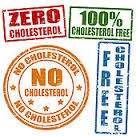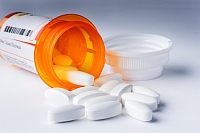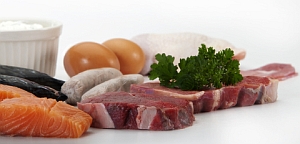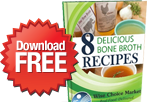 The great cholesterol controversy
The great cholesterol controversy
Depending on who you talk to, cholesterol may be your worst enemy or your best friend. But did you know without cholesterol we simply would cease to exist?
Let’s see if we can unravel the debate by understanding what cholesterol is and how it's used in your body.
What is cholesterol?
Cholesterol is a lipid (another word for fat) – and is synthesized from Acetyl CoA which is a steroid alcohol. It is a soft waxy substance, and like fats, it’s not water soluble. This is where HDL and LDL come into play.
What are HDL and LDL?
Often incorrectly called HDL cholesterol and LDL cholesterol, they are actually lipoproteins that act as shuttles to transport cholesterol and other lipids through water inside and outside cells. Here’s a quick look at their functions.
LDL (low density lipoprotein) comes in two types:
- The ‘good’ big fluffy LDL transports cholesterol to every cell in your body.
- The small dense LDL is ‘bad’ because it can become easily oxidized (see below).
HDL (high density lipoprotein) moves cholesterol from the cells back to the liver to be recycled.
The bigger cholesterol picture
Every cell in your body uses cholesterol to provide strength and integrity so cell walls aren’t flabby. That alone makes cholesterol essential to life. But it’s certainly not the only function of cholesterol.
- Cholesterol is a precursor to steroid hormones and sex hormones. Low cholesterol is implicated in infertility and menopausal symptoms.
- Cholesterol is a precursor to Vitamin D.
- Cholesterol plays a role in nerve conduction.
- In the liver, cholesterol is converted to bile and stored in the gallbladder. Bile contains bile salts which emulsify fats in the digestive tract and aids in absorption of the fat soluble vitamins, A, D, E & K.
- Cholesterol is a powerful antioxidant.
- Cholesterol is necessary for wound healing.
- Cholesterol provides precursors for phospholipids in the brain.
- Cholesterol is vital for neurological function.
- Cholesterol in mother’s milk supplies babies with close to 6 times the amount most adults consume from their food.
About 85% of cholesterol is made by your body!
Yes, you read that right. In the average person, only about 15% of the cholesterol in your body comes from dietary sources. If you eat more than your body needs, it produces less. If you eat less than your body needs, it will produce more.
 The fear of cholesterol
The fear of cholesterol
Ask most doctors today about cholesterol and you’ll soon be part of the one-in-three Americans who ‘need’ to be on a statin drug. Given the information above, maybe it’s time to step back and ask different questions.
After all, not all doctors have their prescription pad in hand, ready to put you on a statin drug.
Heart of the Matter
The search to find answers to the cholesterol controversy isn’t limited to the U.S.
Australia recently aired a 2 part series on ABCTVCatalyst: The Cholesterol Myth: Dietary Villains and Cholesterol Drug War. It’s refreshing to see that there’s an open debate about saturated fat, cholesterol, and statin drugs.
Statins
Some of the known side effects of statins are: anemia, acidosis, sexual dysfunction, cataracts, pancreas and liver dysfunction, neuropathy, memory loss, and muscle pain and weakness. Muscle weakness is due to statins’ ability to reduce Ubiquinone or Coenzyme Q10 (CoQ10). Your body uses CoQ10 in muscle function and heart health. In fact your heart requires high levels of CoQ10.
Normal has been changed
For an eye opening and fun look at statins you may want to watch this 5 minute video: Lipitor Paradox.
Damaged fats = oxidized cholesterol
Oxidized cholesterol is quite damaging to your body! But one of the main causes of oxidized cholesterol may surprise you - vegetable oils. Canola, soy, corn, and cottonseed for example, are damaged fats from being processed at high heat. Most of the vegetable oils are also high in Omega 6 fatty acids which tend to be pro-inflammatory. Hydrogenated and partially hydrogenated fats should be strictly avoided!
A return to food sources of healthy cholesterol
Many of the nutrient dense foods that previous generations fed their families contained abundant amounts of cholesterol. Certainly well beyond what is ‘recommended’ today.
 The meals your great grandma served included cholesterol rich animal foods of the land and sea. Farm fresh eggs, whole raw dairy, cream, butter and cheese made from the milk of pastured cows; meats and organ meats added to bone broth for nourishing soups; fresh caught fish and fish roe (caviar).
The meals your great grandma served included cholesterol rich animal foods of the land and sea. Farm fresh eggs, whole raw dairy, cream, butter and cheese made from the milk of pastured cows; meats and organ meats added to bone broth for nourishing soups; fresh caught fish and fish roe (caviar).
These same delicious foods can provide you and your family with healthy sources of dietary cholesterol.
Disclaimer: These statements have not been evaluated by the Food and Drug Administration. These products are not intended to diagnose, treat, cure, or prevent any disease.
Information provided in this article is not designed to and does not provide medical advice, professional diagnosis, opinion, treatment, or services to you or to any other individual. This is general information for educational purposes only. The information provided is not a substitute for medical or professional care, and you should not use the information in place of a visit, call, consultation, or the advice of your physician or other healthcare provider. Wise Choice Marketing Inc is not liable or responsible for any advice, course of treatment, diagnosis, or any other information, services, or product you obtain through Wise Choice Marketing Inc.


 Loading... Please wait...
Loading... Please wait...













